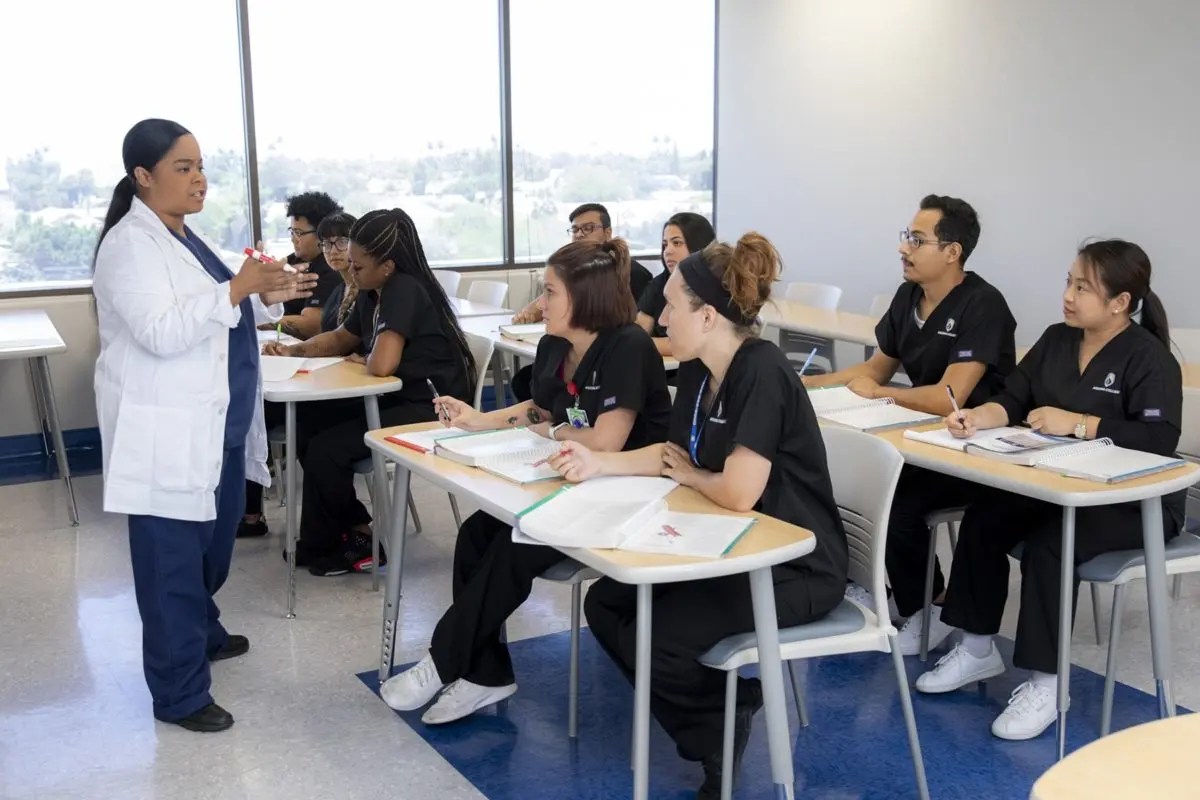Health Care Administration Course Descriptions
Classes begin March 23rd

Health Care Administration – Schedule Of Courses
The Associate in Applied Science (AAS) in Health Care Administration program prepares students to become successful leaders in all types of varied health care settings. Classroom experiences focus on the development of skills to be an effective leader and planner, capable of directing, coaching and developing motivated employees and employee teams.
Transfer of Credit and Occupational Course Descriptions
The Associate in Applied Science (AAS) in Health Care Administration program prepares students to become successful leaders in all types of varied health care settings. Classroom experiences focus on the development of skills to be an effective leader and planner, capable of directing, coaching and developing motivated employees and employee teams.
Transfer of Credit
Transfer of Credit
40.0 Credits
Learn More
To enroll in the program, students must have graduated from a program in an allied health field that includes at least 40 quarter credits with a cumulative GPA of 2.0 or better (18 quarter credits in health care related courses).
Occupational Courses: HCA 220
Effective Leadership
3.0 Credits
Learn More
This course will introduce the student to and explore various leadership styles. The goal of this course is to develop and enhance the student’s leadership skills through the readings in order to optimize leadership capabilities. Concepts such as leadership qualities, characteristics and ethics in the workplace will be discussed. Prerequisite: None
Occupational Courses: COM 200
Microsoft Office Basics
2.5 Credits
Learn More
Students will gain experience using Microsoft Office Systems including Word, Excel, PowerPoint and Access. Report generation, database storage and online software will be utilized. Prerequisite: None
Occupational Courses: INF 101
Health Care Informatics
2.5 Credits
Learn More
Introduction to Health Care Informatics offers an overview of the field of health care informatics by providing students with the fundamental knowledge of the concepts and how technology can be used in the delivery of health care. This course will introduce Health Care Informatics definitions, theory, technologies, workflow and expectations in the informatics field, tools and professional organizations. Prerequisite: None
Occupational Courses: MGT 201
Principles of Management
3.0 Credits
Learn More
This course is designed to increase an awareness into the concepts in management which consist of organizing, planning, delegating and staffing. Students will utilize and develop critical thinking skills as they apply these introduced concepts to own their own life experiences as well as future employment. Prerequisite: None
Occupational Courses: MGT 203
Human Resource Management
3.0 Credits
Learn More
This course is an introduction to the roles and responsibilities of health care human resource management and the importance of the department within the organization. Students will learn the tools needed for effective personnel management. Students will be introduced to motivational techniques, performance appraisals, counseling, termination processes and aspects of employment law. Prerequisite: None
Occupational Courses: MGT 207
Managing the Medical Office
3.0 Credits
Learn More
This course is designed to utilize all aspects of managerial concepts by simulating situations that the medical practice manager may routinely encounter. Students will take on the role of a Practice Manager with responsibilities including employee relations, maintaining office and medical supplies and safety issues, while maintaining a profitable, patient-centered medical practice. Prerequisite: None
Occupational Courses: NTR 241
Human Nutrition
3.0 Credits
Learn More
This course focuses on the principles of human nutrition with an emphasis on health promotion and concepts for conveying accurate nutrition information in a professional setting. Prerequisite: None
Occupational Courses: LAW 101
Legal Aspects of Health Care
3.0 Credits
Learn More
This course addresses legal issues pertinent to the practice of health information management. Prime concentrations are medico-legal issues, confidential and non-confidential health information and legal principals governing access to confidential health information. Identification of major resources for locating information on law, rules, regulations and standards related to health information is presented. Prerequisite: None
Occupational Courses: ACC 111
Health Care Finance
3.0 Credits
Learn More
This course concentrates on the practical aspects of medical bookkeeping. Students will study such concepts as daily record keeping, fee schedules, super-bills, journalizing, banking for the medical office, check writing, banking procedures, financial statements and payroll. Prerequisite: None
General Education Course Descriptions
The Health Care Administration program consists of three (3) terms of ten (10) weeks each. Each term is divided into two (2) five-week sessions. The entire program is approximately 30 weeks.
General Education Courses: ENG 101
English Composition
3.0 Credits
Learn More
This course provides college students with a general grammar review and the opportunity to practice effective professional writing skills. Students will learn to write on persuasive, critical and research-oriented or professional subjects. Fundamentals of spelling and punctuation will be reviewed to allow the student to write effectively. Prerequisite: None
General Education Courses: ENG 111
Writing for Professionals
3.0 Credits
Learn More
This course provides students with a general punctuation review and the opportunity to practice effective professional writing skills. Students will learn how to write correspondence, reports and proposals commonly required in the health care industry. Elements of grammar, spelling, creativity, professionalism and changing technologies will be addressed throughout each section of this course. Prerequisite: None
General Education Courses: MAT 151
College Math
3.0 Credits
Learn More
This course will include analysis and interpretation of the behavior and nature of functions, including polynomial, rational, exponential, logarithmic, power, absolute value and piecewise-defined functions, systems of equations, modeling and solving real-world problems. Prerequisite: None
General Education Courses: PSY 101
Introduction to Psychology
3.0 Credits
Learn More
This course studies psychological viewpoints and theories about personality and mental illnesses. Treatment methods are also discussed. The steps of problem solving, learning techniques and the memory process will be discussed and applied to situations in life and the workplace. Prerequisite: None
General Education Courses: PSY 240
Human Development
3.0 Credits
Learn More
This course studies psychological viewpoints and theories about personality and mental illness. Treatment methods are also discussed. The steps of problem solving, learning techniques and the memory process will be discussed and applied to situations in life and the workplace. Prerequisite: None
General Education Courses: ECO 101
Economics
3.0 Credits
Learn More
The purpose of this class is to introduce students to the basic tools of economics. Concepts such as supply and demand, the understanding of markets and the global market economy will be discussed. The practices of production, consumption and transfer of wealth will be examined at both micro- and macro-economic levels. Prerequisite: None
General Education Courses: SOC 101
Sociology
3.0 Credits
Learn More
This is an introductory course in Sociology as it relates to theoretical perspectives in health care. This course provides an overview of the study of society. Basic principles are covered, including socialization, culture, social institutions, social structure, social stratification, deviance and the evolution of society. Prerequisite: None
General Education Courses: TQM 101
Quality Customer Service
3.0 Credits
Learn More
This course will provide guidelines and best practices for providing excellent customer service in the health care setting. The theories of various managerial strategies such as conscious capitalism and servant leadership will be compared and contrasted. Total quality management principles and organizational behavior will also be discussed. Prerequisite: None
General Education Courses: SPE 101
Speech
3.0 Credits
Learn More
This course provides a basic understanding of the principles of oral communication and public speaking. Students will learn to clearly present ideas with confidence when speaking to a group. A thorough discussion of the communication process will be reviewed, including how to reduce public speaking anxiety, develop rehearsal skills and conduct ethical research. Prerequisite: None








